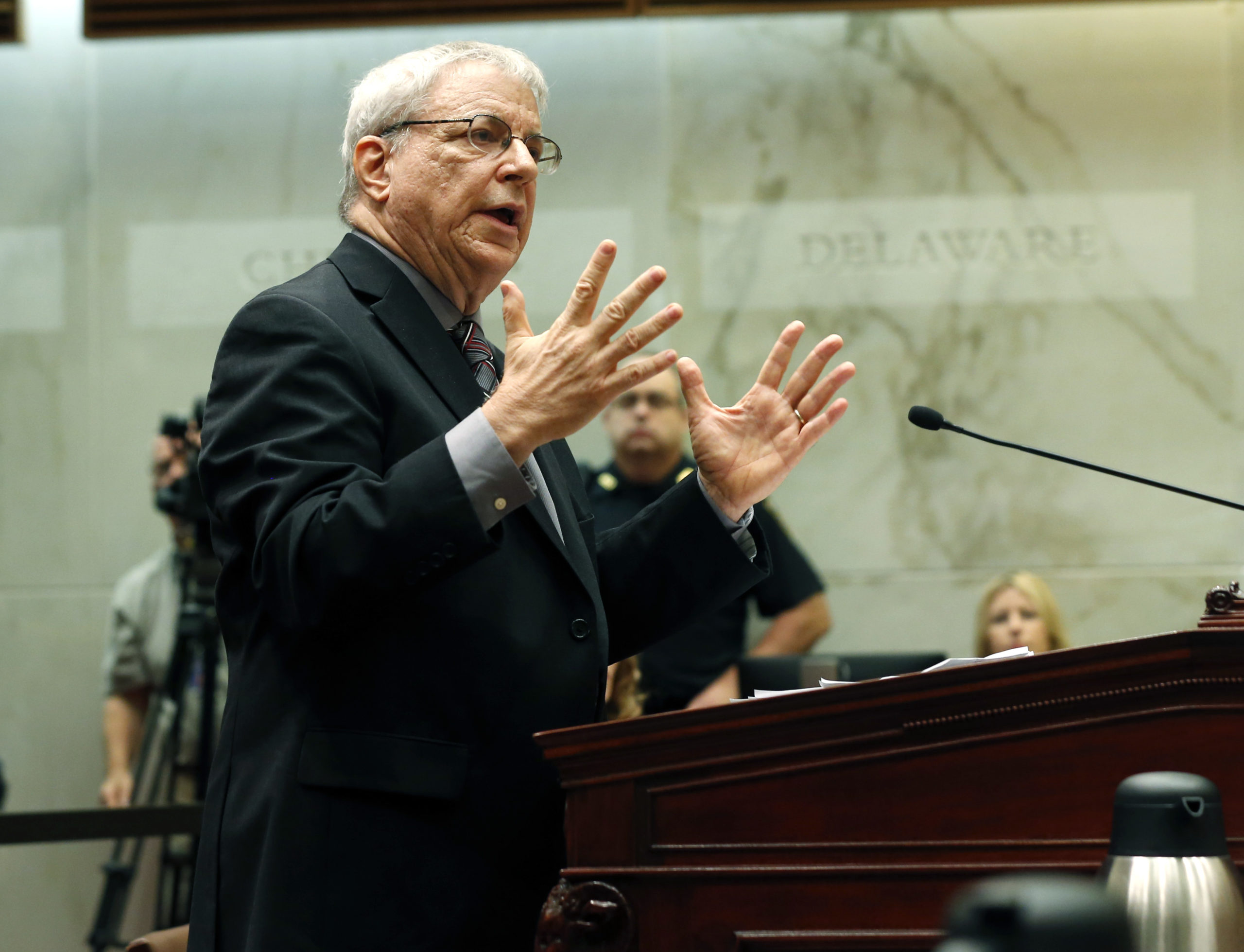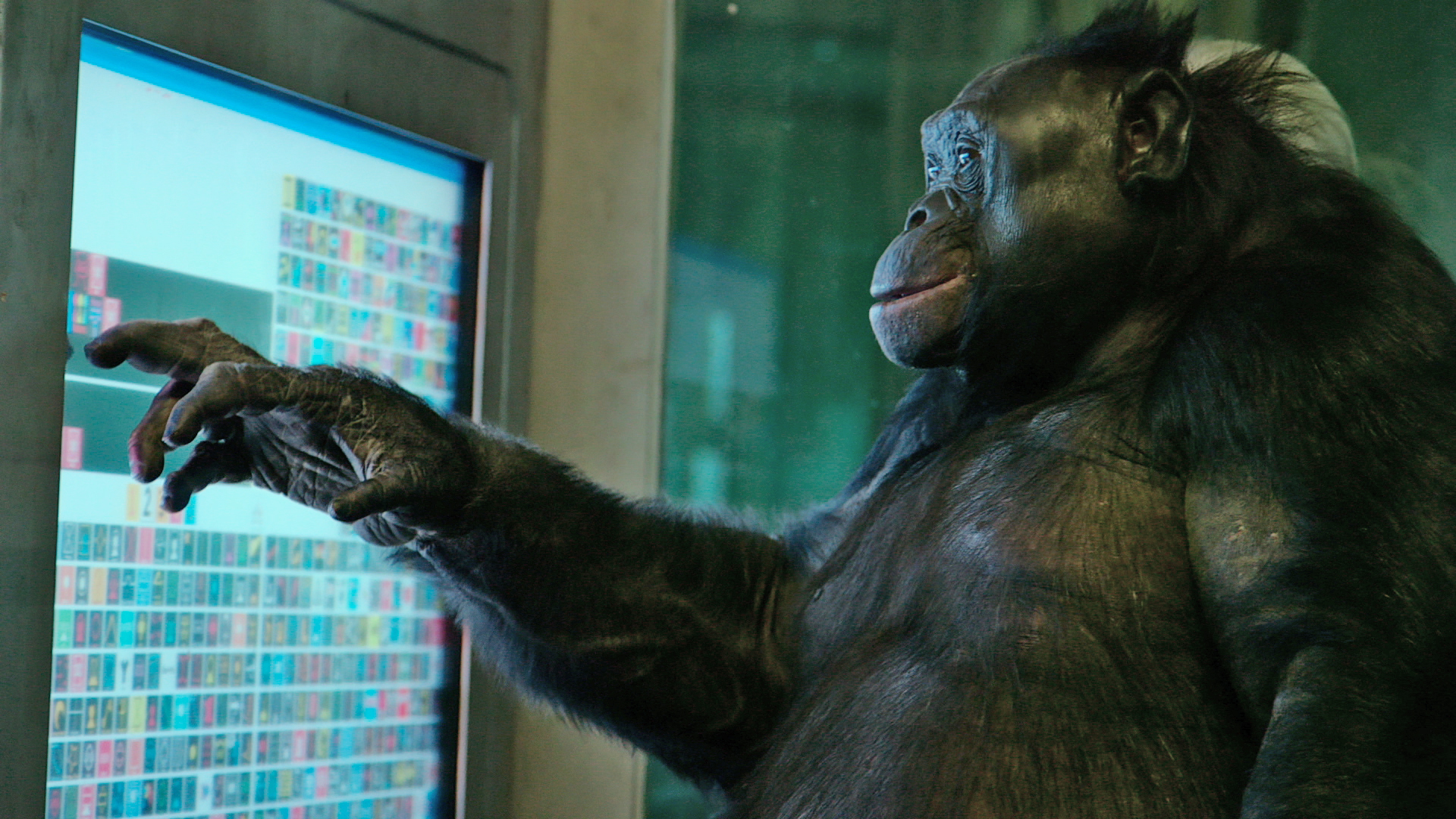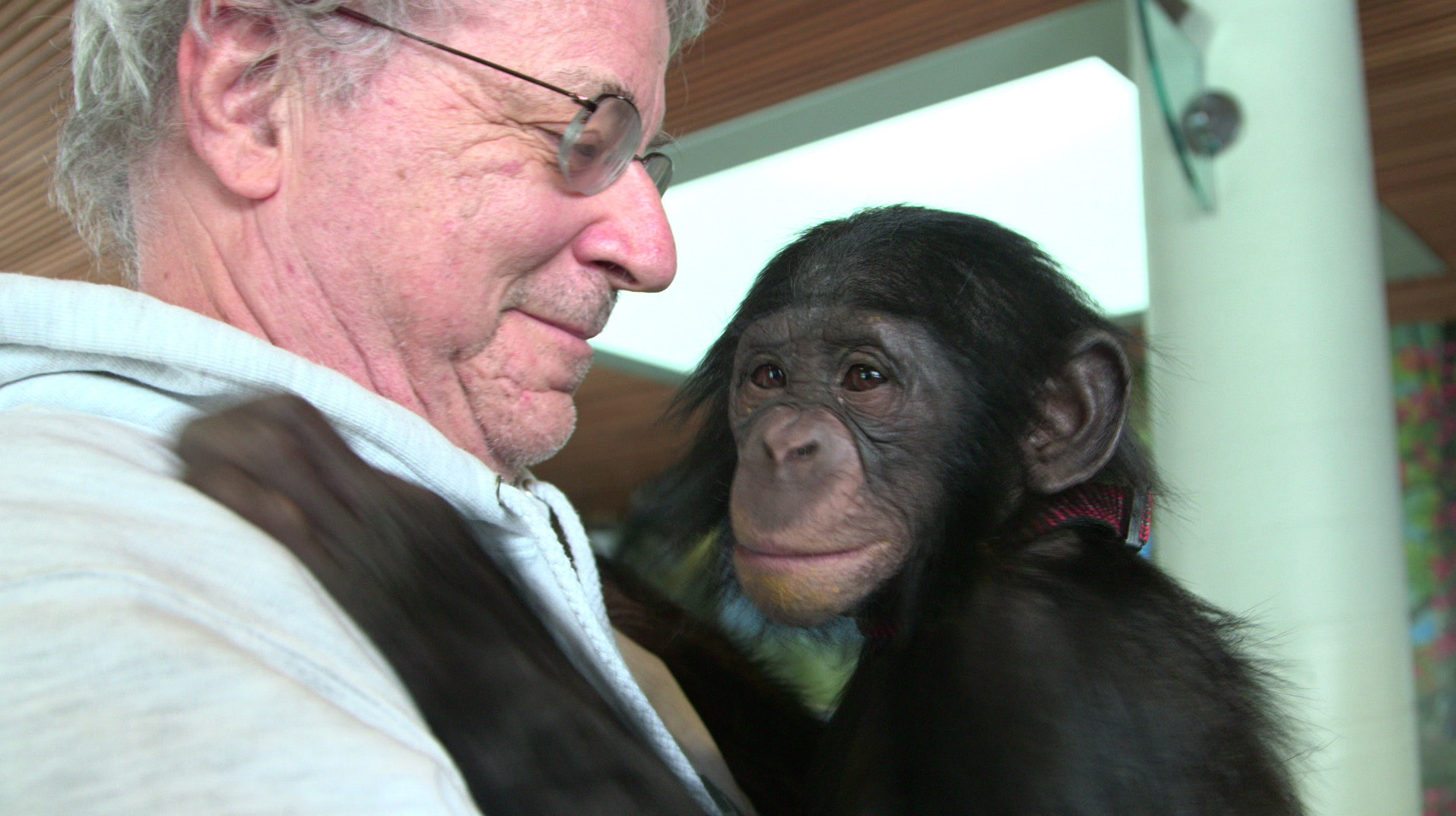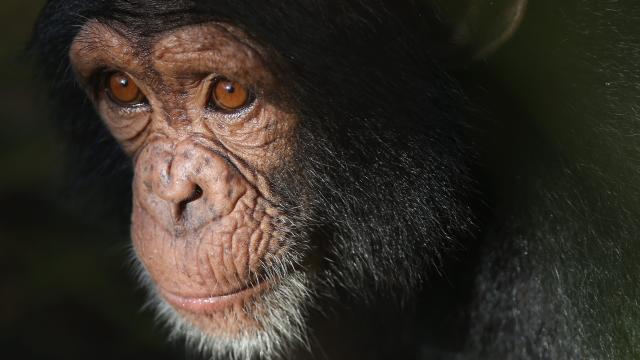“They used to bark at me when I walked into the courtroom,” lawyer Steven Wise said in the Sundance documentary Unlocking the Cage, which debuted on HBO last month. His use of the word “bark” is literal.
Image: Getty
Wise, founder and president of the Nonhuman Rights Project, has spent his entire legal career preparing to represent the first chimpanzee plaintiffs in the US court system. While he’s no stranger to having his life’s work — of attempting to get certain animals recognised as persons — poked fun at, he’s found that the courts have taken him seriously.
The distinction of “persons”, not “people”, is important. Part of the apparent absurdity is that on the surface, arguing for personhood might sound like saying a chimpanzee should have the same rights as an adult human, like the right to own property and vote in elections. Instead, the category of “person” is a legal one referring to a being entitled to certain fundamental rights. The case of the chimpanzees, Wise said, is about their right to bodily liberty — recognising the animals as legal beings instead of “things”.
On March 16, Wise will be presenting oral arguments in the New York Supreme Court, Appellate Division, First Judicial Department in Manhattan on behalf of Tommy and Kiko, two chimpanzees who appeared in movies in the 1980s and are now living in New York State in questionable conditions — Tommy, in a concrete cell at the back of a trailer lot in upstate New York, and Kiko, in a concrete storefront operated out of a private home in Niagara Falls. According to NhRP, Tommy has frequently been left with a small TV set as his only stimulation; Kiko has been photographed with a makeshift leash made of a padlock and chain around his neck. Both animals, kept in cages, are being deprived the natural habitats and socialisation that chimps, known to thrive in large and organised societies, require.

Steven Wise of the Nonhuman Rights Project arguing on behalf of the chimpanzee Tomm before the New York Supreme Court Appellate Division on Oct. 8, 2014, in Albany, N.Y. (Image: Mike Groll/AP)
Rather than attempt to sue or criminalise the chimps’ owners for cruelty, Wise is using a writ of habeus corpus to argue that these animals are being held against their rights as autonomous beings — autonomy being a “supreme common law value” recognised by the courts, as Wise explained.
“Scientifically speaking, autonomous beings have the capacity to freely choose how to live their lives. They are not cabined by instinct,” Wise told Gizmodo. He believes Tommy and Kiko should be released to true sanctuaries, with living conditions more akin to the jungles chimpanzees are native to, and importantly, other chimpanzees to socialise with. While nonhuman entities like corporations have, in the past, been named persons in the eyes of the law, Wise is the first to seek personhood status for nonhuman animals in a US court. And if it can happen once, the door will be open to recognising personhood in other cases of animal cruelty. Wise could set a precedent that changes the way nonhuman animals are seen in the eyes of the law forever.
Animal cruelty is usually fought piecemeal: Reports come out of an inhumane practice, an advocacy organisation leads a reactionary campaign, and maybe a new law gets passed, or an offender is pressured to change their practices. David Coman-Hidy, executive director of The Humane League, says corporate boycotts are an effective tool. But it’s an imperfect system, because many forms of animal cruelty (like keeping chimps in isolation in concrete cages) are perfectly legal. Some laws are in place to protect nonhuman animals, but not nearly as many as you might think. Farm animals, the focus of THL’s work, “are afforded essentially no meaningful protections, legally,” Coman-Hidy said.
“Some of the most inhumane practices, like extreme confinement, are outlawed, but there’s very little [that is against the law to practice] in terms of slaughter.”
Farm animals, though not (yet) the subject of NhRP’s work, make a strong case in point. Specific forms of cruelty remain legal until — maybe — they’re not any more. Meanwhile, other forms of cruelty remain the status quo. Wise’s approach, of arguing that animals are being not just mistreated, but being held against their rights as autonomous beings, is meant to upend this usual order.
“If we didn’t have rights, all we had was some statute that said you can’t be cruel to me, or that I’m entitled to some kind of welfare, the person who gave it to me can also take it away,” he said. Wise cited the example of environmental protections set forth by the Obama administration, which are now being rolled back by Trump. Essentially, if legislation can be passed, it can also be erased. Rights are more difficult to erode. As Wise put it, there’s a big difference “between having rights that you can enforce, and just being the object of protections that someone wants to give you”.

Kanzi the chimpanzee as seen in Unlocking the Cage. (Image: Pennebaker Hegedus Films/HBO)
It’s been a few years since Wise first made headlines for filing on behalf of Tommy in 2013, and initially being rejected by a ruling and an appeals court by the end of 2014. Since then, his firm has also filed cases on behalf of the chimps Hercules and Leo, who were being held at Stony Brook University as biological subjects for study. Wise didn’t win that case either, but a public campaign (led by none other than Jane Goodall, primate expert and NhRP board member) is now pressuring Hercules and Leo’s owner, the New Iberia Research Center, to surrender the animals to a sanctuary in Florida.
Despite its losses, the NhRP is anything but discouraged.
According to Wise, Justice Barbara Jaffe, the judge in the First Department’s ruling on the Hercules and Leo case in 2015, agreed with “virtually everything” the NhRP presented. Jaffe wrote in her decision that “‘Legal personhood’ is not necessarily synonymous with being human,” and that the concept of legal personhood has “evolved significantly since the inception of the United States. Not very long ago, only caucasian male, property-owning citizens were entitled to the full panoply of legal rights.” But ultimately, Jaffe felt bound by a prior ruling against the NhRP — Tommy’s 2013 case in Albany — where the court said that to be a person you had to “assume duties and responsibilities”.
“The problem is,” Wise said, “millions of New Yorkers cannot assume duties and responsibilities.”
Wise is referring to what animal ethicists often call the “arguments from marginal cases”: If we define humanity, or personhood, as possessing a certain ability — in this case, the ability to assume responsibilities — what does that mean for the human beings who don’t? Are young children and those with disabilities less entitled to rights?
Few would say so. And this is where it gets messy when scholars and judges try to make logical distinctions between humans and other animals. The particular distinction the Albany court went with in the case of Tommy was that collectively, humans are able to assume duties, and chimps are not.
Wise is now armed to attack that assertion. The team has collected 60 pages of expert affidavits attesting to how chimpanzees in fact do assume responsibilities, both in chimpanzee-only and human-chimpanzee communities. At this stage, NhRP’s hope is the Manhattan court sets them up to appeal the Albany ruling. Considering it took almost 30 years between Wise getting the idea to argue for legal nonhuman personhood at all, and filing the first case, the process feels like a slow one. But Wise and his firm are in it for the long haul, and it’s entirely possible that one of their clients could be recognised as a person before the end of 2017. What’s more, NhRP is already looking outside of the Empire State.
Wise sees the bigger picture as a movement. He says the firm is in talks with lawyers in 11 different countries.
“We may be arguing in this courthouse way out in rural New York, but… people all over the world are paying attention to what we’re doing and why we’re doing it,” he said.
As of now, NhRP is gearing up to file a personhood case on behalf of circus elephants, and it’s looking into building a case for the orcas at SeaWorld in San Diego. Though the nature of the abuse and mistreatment is secondary to Wise’s legal argument, these cases are likely dire ones — abuses against circus elephants and SeaWorld orcas are well-documented. Large animals in captivity often suffer illness and developmental issues as a result of cramped and unnatural living spaces and breeding practices. Even worse, reports of violent abuse (beatings, confinement, use of ropes and shocks) in performing animal conditions are tragically common.

Steve Wise with the chimpanzee Teko, as seen in Unlocking the Cage. (Image: Pennebaker Hegedus Films/HBO)
It would be no small victory for Wise to rescue even one of his clients from an unhappy life. But the greater value is the chance to set a precedent for the future. Future cases for nonhuman personhood in New York would be able to refer directly to the NhRP ruling, and a model would be provided for other states, even other nations.
“We’ve known from the beginning that ours will be a long-term fight continuous with and similar to other struggles for recognition of personhood and fundamental rights,” Wise said. That they have even made it this far, he says, is “a turn away from speciesist thinking”.
Kiko and Tommy, in other words, are only the beginning.
